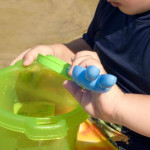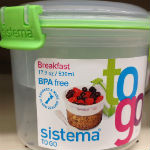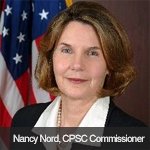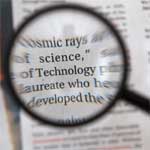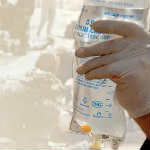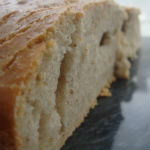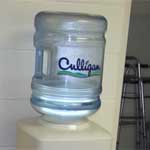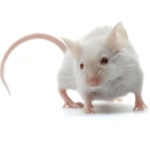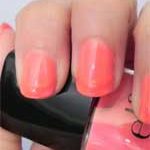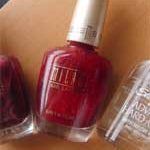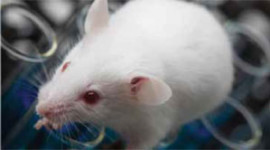"Six Products Battling Misinformation," By The Center for Accountability in Science Team. Earlier this month, Safer Chemicals, Healthy Families warned against Six Products to Avoid Whenever Possible. Despite admonishing “scare-tactic click bait headlines that throw parents into a panic,” the author proceeded to write just that. So, in the interest of setting the record straight, we present: Six Products Battling Misinformation. Read more. Save Save Save … [Read more...]
Fast Food and Phthalates
"Do People Who Eat Fast Food Have Higher Levels of Phthalates?" By Center for Accountability in Science. You may have seen the headlines, “If You’re Eating Fast Food, You’re Probably Also Eating Phthalates.” A new study published today in Environmental Health Perspectives finds that teens and adults who reported eating more “fast food” had slightly higher levels of two types of phthalates in a urine test. But before you start to worry about the safety of your burrito or burger, let’s break down … [Read more...]
Dismiss Christmas Toy Alarmism
"Holiday Toy Safety: Common Sense Trumps Activist Advice," By Angela Logomasini. If you believe the U.S. Public Interest Group (USPIRG), the “Slinky Jr.” or “Fun Bubbles Jump Rope” that Santa might bring to your children should send shivers down your spine. These items are among the “toxic” toys listed in the group’s annual “Trouble in Toyland” report. But don’t fret, because the only thing that’s really troubling is USPIRG’s alarmism. Read more. … [Read more...]
Chemicals in Consumer Products
"Are we contaminating our bodies with everyday products?," Center for Accountability in Science. Over the holiday weekend, a New York Times column by Nicholas Kristof argued chemicals used in everyday products are linked to a host of health problems, including cancer, obesity, diabetes, and infertility. And that’s not all—Kristof takes his warning even further, arguing that by not heeding the warnings of organizations such as the Endocrine Society and the International Federation of Gynecology … [Read more...]
Plastics Making Kids Fat Nonsense
"Is It A Blue Moon? Environmental Magazine Correct on Phthalates" by American Council on Science and Health. So it is with an extra measure of satisfaction that we now describe not one, but two, studies apparently exonerating a favorite EHP target — the plasticizing chemical group, phthalates — as a causal factor in childhood obesity, published in EHP this week. We here at the American Council on Science and Health have often — very often, in fact — taken issue with the academic pursuits … [Read more...]
“Obesogens” and Plastics Myth
"Media Ignores New Studies Finding No Link Between Phthalates and Obesity," by Center for Accountability in Science. Despite a robust $20 billion weight-loss industry, Americans can’t seem to lose weight and keep it off. Instead of blaming cuts to recess, increased sedentary lifestyles, and consuming too many calories, researchers have come up with a new theory: chemicals are making us fat. This theory, known as the “obesogen hypothesis” was coined in 2006 and is the basis for millions of … [Read more...]
Lowes and Home Depot Sell Out to Activist Junk Science
"Stupid-Strategy Sweepstakes: Home Depot vs. Lowe’s," By Jeff Stier & Henry I. Miller. Both of the nation’s retail hardware behemoths, Home Depot and Lowe’s, recently sold out to activists in ways that are the corporate equivalent of a dog’s putting his tail between his legs and slinking away from a bully. Home Depot announced that by the end of this year it will stop selling vinyl flooring that contains a class of chemicals called phthalates. It described the move as an effort to … [Read more...]
Former Commissioner Condemns CPSC “Science” on Phthalates
"Former CPSC Watchdog Condemns her Former Agency for Biased, Unacceptable Junk Science," By American Council on Science and Health. In an article in The Hill, former Consumer Product Safety Commission member (2005-13, Acting Chair 2006-9) Nancy Nord calls it like it is regarding the shoddy, biased job the CPSC did in evaluating potential human risks from a commonly used phthalate, DINP. Hear her dismay in the title, Using poor science and stale data to support flawed policy. Not much more needs … [Read more...]
Flawed Data = Flawed Phthalates Rule
"Using Poor Science and Stale Data to Support Flawed Policy," By Nancy Nord. In 2008, after lead-contaminated toys and other products from China wound up on American store shelves and forced product recalls, Congress rushed to pass legislation intended to protect Americans, giving the Consumer Product Safety Commission -- a small and relatively unknown federal agency-- sweeping new regulatory authority. Now, nearly seven years after that scare, it is increasingly clear that the new powers … [Read more...]
CPSC’s Selective Use of Data for Phthalates Study
"Data Torturing at the CPSC," By Angela Logomasini. James Mills of the National Institute of Child Health and Human Development lamented in an article in the New England Journal of Medicine back in 1993: “‘If you torture your data long enough, they will tell you whatever you want to hear’ has become a popular observation in our office. In plain English, this means that study data, if manipulated in enough different ways can prove whatever the investigator wants to prove.” Government regulators … [Read more...]
ACSH Comments to CPSC on Phthalates
"ACSH submission to CPSC re: Chronic Hazard Advisory Panel (CHAP) report on DINP" By American Council on Science and Health. Dear Chairman Kay: The American Council on Science and Health (ACSH) wishes to express our deep disappointment in the conclusions of the U.S. Consumer Product Safety Commission (CPSC) regarding the plasticizer chemical, diisononylphthalate (DINP). ACSH and our Scientific Advisory Panel, numbering 360+ experts and academicians, are concerned about the validity of the data … [Read more...]
CPSC’s Scientific Shenanigans
" CPSC's Scientific Shenanigans on Phthalates," Angela Logomasini. Many “stakeholders” have complained about the process through which the Consumer Product Safety Commission (CPSC) developed its proposed rule related to a class of chemicals called phthalates—and rightly so. In particular, the agency’s failure to allow public comment and open peer review of its Chronic Hazard Advisory Panel report (CHAP report) underscore the fact that bureaucrats want to avoid scrutiny that might hold them … [Read more...]
CPSC Proposal on Phthalates Likely Harm
"CPSC Proposal on Phthalates Likely to Do More Harm than Good," by Angela Logomasini. On Monday, the Consumer Product Safety Commission will close the comment period for a proposed rule related to chemicals used to make soft and pliable plastics. While they claim to do this in the name of children’s health, it’s not clear that the rule will do more good than harm. The process and the “scientific” review that brings us to this proposed rule has been controversial, to say the least. I detail … [Read more...]
Nord: CPSC US Flawed Data for Proposed Phthalates Rule
"Phthalates NPR: Flawed Theory Supported by Flawed Data," by Nancy Nord. On March 16, 2015, the comment period will close for the CPSC’s proposed rule banning specified concentrations of phthalates in children’s toys and child care articles. While those who make and use phthalates are well aware of this proceeding, it has much broader implications for the entire regulated community. The proposed rule is flawed not only in terms of substance but also of process. The manner in which it used a … [Read more...]
Top Ten Scares of 2014
"ACSH’s Top 10 Health Scares of 2014," by American Council on Science and Health. 10.The Food Babe attacks ingredient found in Subway bread The chemical azodicarbonamide is used in baking as a dough conditioner, meant to improve the strength and workability of the dough, as well as to increase the speed at which the dough rises. It is a common ingredient in bread. Azodicarbonamide is generally recognized as safe (GRAS) by the U.S. FDA, and is thus considered safe to be added to foods. Read … [Read more...]
Endocrine Disruptors and Male Fertility
"Phthalates And Prostates: Endocrine Disruptors Shortening The Distance Between Male Anus And Penis," By Hank Campbell. Men are becoming more effeminate. That is not news. If you watched the ESA's Rosetta mission arrive at Comet P67 you saw a tattoo-covered fellow talk about engineering and he looked manly, but two days later he was crying during a press conference because his bowling shirt had offended women on Twitter. The signs of feminization are not just present in large, bearded men … [Read more...]
No Need to Fear Dr. Oz’s “Secret” Chemical Ingredients
"Dr Oz and Phthalates," By Dr. Joe Schwarcz. The title of the segment on the Dr. Oz Show was “The Secret Ingredient Companies are Hiding in Your Food.” What could that be? Some opiate to keep you coming back for more? Tetrahydrocannabinol to increase appetite? No. The segment was all about chemicals called phthalates. And companies are not hiding their presence any more than they are “hiding” the presence of numerous substances that are not added to our food supply on purpose but can be … [Read more...]
More Toxic Advice From Dr. Oz
"Dr. Oz Magic Will Protect You From Toxic Chemicals. No it Won’t," by American Council on Science and Health. Always be selling seems to be the watchword on the “Dr.Oz Show,” or perhaps it should be called “The Dr.Oz Travelling Medicine Show,” given the snake-oil and related supplement junk he purveys in the guise of public health. But in order to convince as many of his star-struck viewers to buy his “Dr. Oz Diet,” he first has to scare them away from traditional fare. That’s where his new … [Read more...]
Don’t Fear Plastics
"Shoutout to ACSH Friend Jack Dini for an Informative Column on Chemophobia," by American Council on Science and Health. ACSH friend and author Jack Dini published a very informative article countering many fears regarding common substances found in plastics. The article, titled “Don’t fall victim to plastic leaching from items,” was recently published in the Canada Free Press. The column summarizes some of the recent literature surrounding these substances, including BPA (Bisphenol A) and … [Read more...]
Disrupting Claims about Plastics
"Let’s make this simple: Estrogenic Effects Come from Estrogens. (Duh). NOT from Plastics," By American Council on Science and Health. Of all the garbage “science” topics that we routinely cover, among the worst is the concept that miniscule amounts of so-called “endocrine disruptors”—chemicals that supposedly have an adverse impact on human sexual development—do anything whatsoever. The plastic component BPA and plastic softeners, phthalates, are the two poster children of the movement, but … [Read more...]
Green Building Junk Science
"Are Healthy Buildings Built On Lies?" By Josh Bloom. The fad du jour (and I defy you to find a non-du jour day) is something that sounds like an absolute win-win. It has all the correct buzzwords—green, sustainable, environmentally friendly, endocrine disruptors, bioaccumulation. And many more. Today it's buildings. This is exactly what we at ACSH deal with every day in different forms. There is more than a passing similarity to the very successful promotion of organic foods, dietary … [Read more...]
EU Stops Unscientific Ban on Phthalates
"Phthalates Given a Reprieve by the EU — Surprisingly, Given European Devotion to the Precautionary Principle," by American Council on Science and Health. Plastics! Nothing to Fear...In a surprisingly pro-science stance, the European Commission has swatted away a rebellion by the Danish environmental authorities to race ahead of the science and institute a ban on 4 types of phthalates. These plasticizer chemicals have been targeted by many “environmental” and “consumer” NGOs over the past 15 … [Read more...]
Closing the Shower Curtain on Obsesity Claims
"Shower Curtains Don't Make You Fat," by Julie Gunlock. Ladies, if you’re currently flooding your bathroom each morning because you decided to toss your shower curtain due to some hysterical article you read (and sadly, believed) about shower curtains making people fat, stop what you’re doing. Save your floor grout and reattach that shower curtain. Your shower curtain is guilty of no such sin! Read more. … [Read more...]
Blaming Shower Curtains for Obesity
"Do We Really Have to Worry About Shower Curtains Causing Weight Gain?" by Geoffrey Kabat, Stats.org. Several days ago an article titled “Is Your Shower Curtain Making You Fat?” appeared in the magazine Spry and was then reprinted in the Dodge City Daily Globe. The article drew readers’ attention to the dangers of endocrine disrupting chemicals (EDCs), giving 5 examples of chemicals used in everyday consumer products (BPA, phthalates, PVC, PFC’s, and PBDFs). With a quote from a professor of … [Read more...]
Fearmongering on Chemicals and Male Fertility
"Can Chemicals Slow Sperm — Need We Worry?" By American Council on Science and Health. spermA recent study published in EMBO Reports provides the latest fuel for fear-mongering about chemicals. Dr. Christian Schiffer of the Center of Advanced European Studies and Research in Bonn, Germany and colleagues tested 96 different chemicals found in many household products, foods, and personal care products to see what effect they might have on human sperm. The impetus for this research was the theory … [Read more...]
Rodent Tests Don’t Justify Proposition 65 Listing
"DINP’s Placement on Prop 65 List is not Warranted," By American Council on Science and Health. Diisononyl Phthalate (DINP) was added to California’s ever-growing Proposition 65 list of “known carcinogens” late last year. However, Elissa Sterry, VP for ExxonMobil’s Intermediates Global Business, told the Consumer Products Safety Commission that the rodent studies upon which this decision was based were essentially meaningless. She says, “the relevant mechanisms of cancer development are not the … [Read more...]
More NYT Alarmism About Plastics
"It Never Stops. Monday: Phthalates, Tuesday: BPA, Wednesday: Phthalates, Thursday: BPA, Friday: Phthalates …." by American Council on Science and Health. It’s a good thing there aren’t more days in the week, cause this could get awfully tiresome. But on March 21st (a Friday) those of us who were unfortunate enough to stumble upon Deborah Blum’s piece “A Plastic Threat to Male Fertility” were treated to a world-classless tutorial on (of course) phthalates—which come across as one of the most … [Read more...]
Myth: Chemicals Affect Sperm Counts
"Stupid story of the day— The War On Men: 10 Ways Masculinity is Under Attack," by American Council on Science and Health. Here we go again. Mixing science with politics. We all know how well that works. Yet, Paul Joseph Watson, writing on Infowars.com manages to do just this—with a side order of chemical scares tossed in, and the result is predicable—a big mess. Watson “identifies” ten ways that men are being emasculated. The first two have to do with the “seismic shift” in the balance between … [Read more...]
Phthalate Plasticizers Now Safe
"Several Types of Phthalate Plasticizers, Used for Decades but Once Shunned, Now Safe Again!" by American Council on Science and Health. Posted on February 5, 2014 by adminPhthalates — pronounced THAL-ates — are a family of chemicals, many of which are have been added to PVC plastic to make the firm product softer and flexible. Over the course of the past decade-plus, no chemical group in common use has taken such vitriolic attacks on its safety as have phthalates.In recent years, a distinction … [Read more...]
Nail Polish Alarmism at the NYT
"Don't Worry, ladies. You're not Harming Yourself by Applying your Favorite Nail Varnish," by Julie Gunlock. But that's precicely what an environmental group is telling millions of women in order to push their regulatory agenda. And last week, the New York Times kindly spread the alarmism. In last week's "Just Ask" column, (which perhaps should be renamed "Just Ask...but We Can't Promise a Well Thought Out or Researched Answer), Deborah Blum asks "Is Nail Polish Harmful?" ... Read More. … [Read more...]
NYT Promotes Foolish Fears About Nail Polish
"Be Afraid of Your Nail Polish, says the NYTimes’ 'Ask Well' Column. Really?" by American Council on Science and Health. This is what happens when you let your “health” advice column be taken over by an “environmental writer.” This week’s Science section of the New York Times included an advisory about cosmetics entitled, “Is nail polish harmful?” So what sort of answer would you expect? What if you substituted “artichokes” for “nail polish”? Certainly too much H2O can be harmful: more people … [Read more...]
Phony Phthalates Scare
"What Started the Phony Phthalates Scare? Utterly Inept Science, by American Council on Science and Health." Phthalates, a group of ubiquitous chemicals that are perennial darlings of the anti-chemical movement, have been accused of being responsible for just about everything from birth defects to the assassination of Archduke Ferdinand. Well, now they may be going onto California’s chemical wastebasket called “Proposition 65”, ostensibly a list of chemicals that cause cancer or reproductive … [Read more...]
California Wrongly Lists Plasticizer, Phthalate DINP, on Prop. 65
"California’s Prop 65 Bandwagon Rolls Over Another Safe, Useful Chemical," by American Council on Science and Health. Yesterday, the California Environmental Protection Agency’s Office of Environmental Health Hazard Assessment (OEHHA), the mega-brains deciding on which chemicals need to be labeled under Proposition 65’s dictum, “known to the State of California” to be a carcinogen or reproductive toxicant, announced that the phthalate DINP (diisononylphthalate) would be included on the list. … [Read more...]
Statistical Shenanigans: JAMA “Study” on Phthalates
"Results First, “Study” Later: JAMA Dredges up More Junk against Phthalates," by American Council on Science and Health. An article published in today’s JAMA Pediatrics purports to link premature birth to exposure to the group of chemicals known as phthalates. These are plastic softeners-plasticizers, and are also found in numerous household products and cosmetics and shampoos. In fact, this so-called study is a typical product of those researchers whose goals are — rather than the advancement … [Read more...]
Plastics, Pregnancy & Bad Journalism
"Can't Get Pregnant? Blame It On Plastics! Well, Not If Science Matters," Jon Entine. If you’re having trouble getting pregnant, plastics may be the culprit—at least that’s what a credulous reader might conclude based on recent news reports and a slew of website stories with headlines like: “New studies link BPA and phthalates to miscarriage and infertility.” But as is often the case when journalists report on complex science issues, the headlines do not align with the facts. A careful reading … [Read more...]
Backpacks & Other School Supplies–Not “Toxic”
"No Case for “Toxic” School Supplies," by American Council on Science and Health. It’s that time of year again. Summer’s over, and school is starting again. And with this new year comes another (predictable) chance for activist groups posing as scientific experts to scare parents about “toxic” chemicals found in children’s school supplies. Some take it further as well, warning consumers about cosmetics, cleaning supplies and furniture. The Center for Health, Environment and Justice (CHEJ) even … [Read more...]
CPSC Commissioner Nord: Problems Remain with Consumer Product Safety Improvement Act
"CPSIA’s Fifth Anniversary," by Nancy Nord. On August 14, 2008, Congress passed and the President signed the Consumer Product Safety Improvement Act (CPSIA). It contained new regulatory authorities and enforcement tools (many of which I suggested to Congress when I served as acting chairman) to make it easier for CPSC to find and recall unsafe products made around the world. Five years ago today, the agency began to follow through on my pledge to implement the law fully and fairly. … [Read more...]
Precautionary Politics Attack Plastics, Medical Devices
"European Descent into Dark Age Ignorance Continues Apace," by American Council on Science and Health. When the EU adopted the anti-science “precautionary principle” as its guiding paradigm a decade or more ago, we don’t think anyone (except perhaps its anti-progress advocates) had any idea how low the regulatory process would stoop in service of its ideology. This misguided concept asserts that any process or substance which has not been “proven safe” should be restricted or banned out of an … [Read more...]
NRDC’s Junk Claims on “Endocrine-Disrupting” Chemicals
"National Resources Defense Council (NRDC) Champions Shoddy Journalism on Endocrine Active Chemicals," By Jon Entine. As Jon Entine of the Genetic Literacy Project reports, the NRDC is not exactly known for scientific nuance. So, there was little surprise when blogger Mae Wu took to the cyberwaves recently to plug an NBC Dateline story promoting the alleged dangers of “endocrine disrupting” chemicals.According to Wu, we should all be shocked—yes shocked—that an NBC producer and her family found … [Read more...]
Scare Tactics Undermine Fight Against Breast Cancer
"Scare Tactics Distract from Finding a Cure,"by Carrie Lukas. With Halloween this week, one might assume that orange and black are the hands-down winners for favorite marketing décor. Yet pumpkins and witches hats have a formidable challenger in the pink ribbons signifying breast cancer awareness month, which currently adorn everything from grocery shelves to athletes’ uniforms. Read the full story on Townhall. … [Read more...]
“Toxic” Journalism & Phthalates
"Bumbling Coverage on Phthalates Underscores How Activist Journalism Endangers ‘Public Science’" by Jon Entine. Last year, campaigning journalist Susan Freinkel noted that she wrote her anti-chemical book, Plastics: A Toxic Love Story, because she was shocked about how much modern society relied on plastics. In her mind, “synthetic materials” equated with poor health, pollution and western gluttony. Freinkel’s perspective reflects a familiar and distressing trope in science journalism. Rather … [Read more...]
Australian Government’s Phthalates Study
"Australian Government Sticks to the Science on Phthalate Ruling," by American Council on Science and Health. In 1999, ACSH assembled a Blue Ribbon Panel of physicians and scientists, chaired by former Surgeon General Dr. C. Everett Koop. The panel, after a thorough review of the literature, gave two members of the family of chemicals known as phthalates a clean bill of health. Phthalates (pronounced thal-ates) are used to soften plastics, which would otherwise be hard and brittle. REad the … [Read more...]
Researchers Find Phthalates in Toys Safe
"Study Finds Diisononyl Phthalate Safe For Toys," by Angela Logomasini While news sources, greens, and U.S. lawmakers hype the risks about children’s exposure to the chemicals found in a host of plastic products from school supplies to toys, the government of Australia has released a comprehensive scientific review on one of the alleged culprits: DINP (diisononyl phthalate). DINP is One of nine phthalates used to make soft and flexible plastics used in a variety of valuable products — from … [Read more...]
Jon Entine Kills “Killer-Backpack” Claims
"Anti-Chemical Alarmism Spreads to Your School -- Dora the Explorer Will Kill Your Kid!" by Jon Entine. Today’s toxic headline: a plastic gun is pointed at your children and it looks like SpongeBob, Hello Kitty and Dora the Explorer. Campaigning NGOs and many journalists share a not-so-attractive sensibility: they are often uncomfortable with complexity. Dividing the world, and prickly science policy issues, into black and white makes for exciting narratives. Unfortunately it’s invariably … [Read more...]
Toxic Misinformation on School Supplies
"Killer Backpacks and Other Nonsense," by Julie Gunlock. As kids get ready to start a new year of school, parents are being advised to warn their children about the dangers of…school supplies? Yup! Forget about those trendy issues from last year—like bullying, the need to respect trans-gender preschoolers, drug abuse, and teen pregnancy; this year, hand wringing environmental advocates are shedding light on the great danger posed by unregulated three-ring binders, lunch boxes and back … [Read more...]
Hyped Risks About Phthalates in School Supplies
"Activist Group Scares Parents About 'Toxic' School Supplies," by American Council on Science and Heath. As the summer season draws to a close, students and parents are making their annual back-to-school shopping trips, stocking up on pencils, notebooks, and backpacks. But before you pick up that Dora the Explorer backpack, the Center for Health, Environment & Justice (CHEJ) wants the public to know that the popular Disney, Spiderman, and Dora branded children’s products (among others) are … [Read more...]
BPA Ban for no Good Reason
"FDA Bans BPA in Baby Bottles Based on Pressure, not Science," by American Council on Science and Health. In April, we lauded the FDA for ignoring chemophobic hype when the agency refused to ban the use of bisphenol A (BPA) in food packaging, cans, and other consumer products. Despite activist pressure — including a lawsuit by the Natural Resources Defense Council — the FDA stuck to its scientific guns and determined that BPA posed no health threats to consumers. Imagine our disappointment, … [Read more...]
Unlikely Link between Phthalates and Diabetes
"Scary common consumer products — not," by American Council on Science and Health. For years, agenda-driven activists have attempted to link phthalates to every conceivable ailment. And now, a new study twists and turns to try to link this class of chemicals — which are present in a wide variety of common products ranging from plastics to cosmetics — with a disease that afflicts many Americans: diabetes. The authors’ own interpretation of this questionable study indicates that exposure to … [Read more...]




